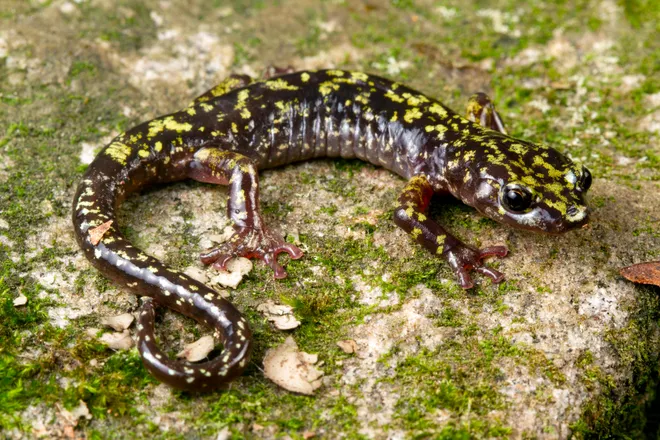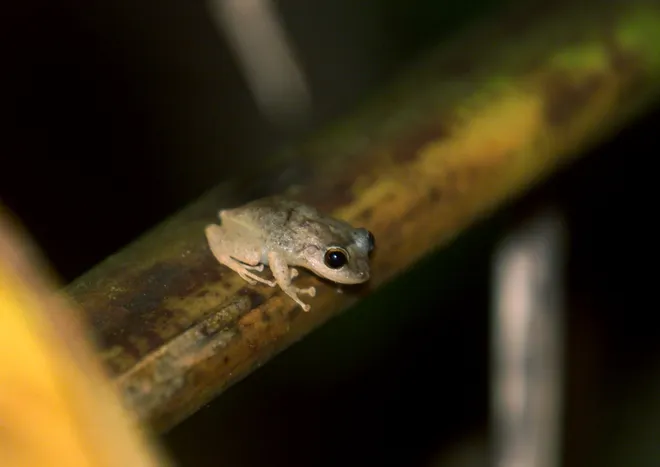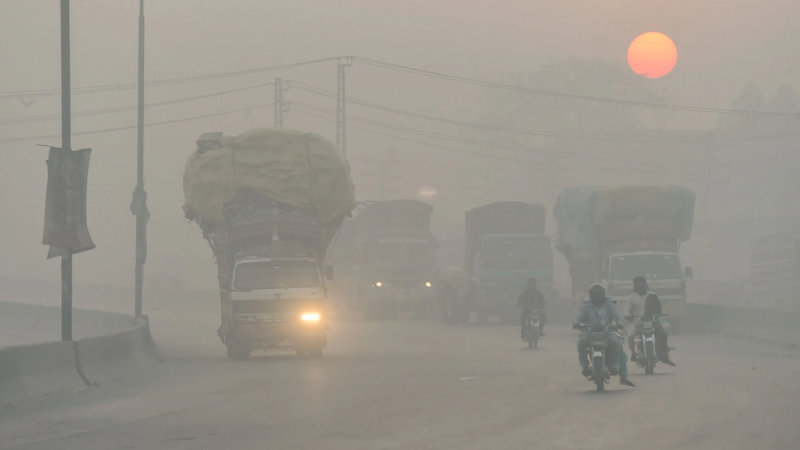'Climate captives': Frogs, salamanders and toads dying rapidly as Earth warms, study says
Human-caused climate change is threatening amphibians around the world, a new study published Wednesday suggests. In fact, 2 out of every 5 amphibian species are now threatened with extinction primarily because of rising temperatures.
Climate change is especially concerning for amphibians because, as cold-blooded animals, they are extremely sensitive to changes in temperature and their environment, according to the study, which was published in the British journal Nature. Common amphibians include frogs, salamanders, newts and toads.
“As humans drive changes in the climate and to habitats, amphibians are becoming climate captives, unable to move very far to escape the climate-change-induced increase in frequency and intensity of extreme heat, wildfires, drought and hurricanes,” study lead author Jennifer Luedtke Swandby, of the International Union for Conservation of Nature, said in a statement.
Other threats to amphibians, including habitat destruction and degradation, disease and overexploitation, are exacerbated by climate change, study authors say.

Amphibians more threatened than other animals
According to the study, nearly 41% of all amphibian species are globally threatened, considered critically endangered, endangered or vulnerable. That compares with 26.5% of mammals, 21.4% of reptiles and 12.9% of birds.
Amphibians are especially vulnerable to the effects of climate change, which can have direct effects on things like water availability and indirect effects by making problems like disease and invasive species worse, the U.S. Geological Survey said.
“Amphibians are the world’s most threatened animals,” said Duke University’s Junjie Yao, a frog researcher who was not involved in the study. “Their unique biology and permeable skin make them very sensitive to environmental changes.”
They are also at risk because of their delicate skin. Most amphibians absorb oxygen to breathe through their skin, and so they do not have scales, feathers or fur to protect them. Chemical pollution, bacteria and fungal infections affect them quickly, as do heightened swings in temperature and moisture levels.

Salamanders and newts most affected
Amphibians such as salamanders and newts are reported to be most affected by the changing climate. The study found that 60% of salamander species are threatened with extinction, primarily as the result of climate change and habitat destruction, which makes salamanders the world’s most threatened group of amphibians.
The study identified the greatest concentrations of threatened amphibian species in several biodiversity hot spots, including the Caribbean islands, the tropical Andes, Madagascar and Sri Lanka. Other locations with large numbers of threatened amphibians include Brazil’s Atlantic Forest, southern China and the southeastern United States.
More:Turns out lots and lots of animals embrace same-sex relationships. Why will surprise you
'Disappearing faster than we can study them'
“Amphibians are disappearing faster than we can study them, but the list of reasons to protect them is long, including their role in medicine, pest control, alerting us to environmental conditions, and making the planet more beautiful,” said Kelsey Neam, one of the lead authors of the study, who works for the nongovernmental organization Re:wild.
The study, “Ongoing declines for the world’s amphibians in the face of emerging threats,” is based on the second global amphibian assessment, which was done in 2022. That assessment is an evaluation of 8,011 species for the International Union for Conservation of Nature's "Red List," the world’s most comprehensive information source on the global extinction risk status of animal, fungus and plant species.

Contributing: The Associated Press
Disclaimer: The copyright of this article belongs to the original author. Reposting this article is solely for the purpose of information dissemination and does not constitute any investment advice. If there is any infringement, please contact us immediately. We will make corrections or deletions as necessary. Thank you.




